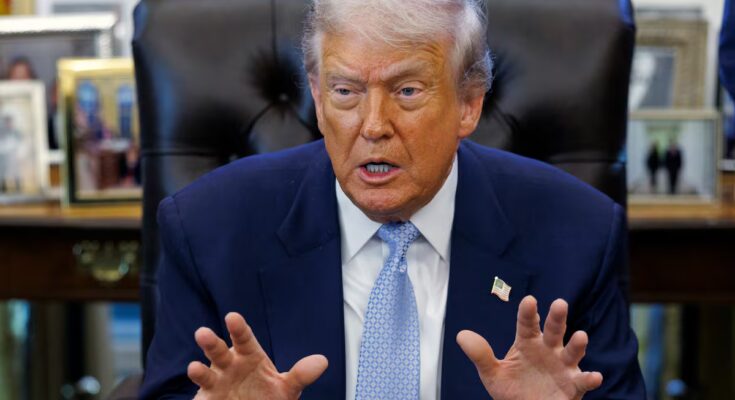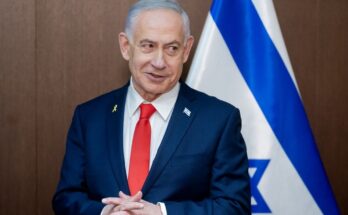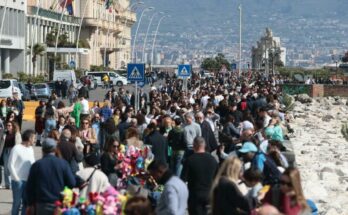US President Donald Trump, immersed in a war of psychological pressure with Venezuela in which his gigantic military contingent in the Caribbean sinks suspected drug traffickers ships coming from that country every week, this Monday also attacked Mexico, the nation from which most of the fentanyl circulating in the United States arrives. In statements to the press in the Oval Office, he assured that he would be “proud” to also order attacks against suspected drug traffickers’ ships in the North American country’s waters, but refused to answer whether this is a possibility that would arise, or whether he will do so without consulting the government of Mexico.
“That’s fine with me. We have to do everything to stop drug trafficking,” he said. “I’m not saying I will do it. But I would be proud,” he added, responding to a reporter’s questions about the possibility of first attacking alleged Mexican drug traffickers and, then, about the possibility of doing so behind the back of President Claudia Sheinbaum and the Mexican authorities.
“I won’t answer that question,” he replied when asked if he had discussed the issue with the neighboring country’s government. “They know we lose hundreds of thousands of people every year to drugs… Not to mention the destruction of families. A lot of that comes from Mexico. So let me put it this way: I’m not happy with Mexico at all.”
It is not the first time the American has protested in public against drug trafficking from Mexico, which brings in most of the fentanyl entering the United States. Fentanyl has become the deadliest drug in the United States and is responsible for the majority of the tens of thousands of overdose deaths that occur in the country each year.
At the same event, a meeting with FIFA representatives to prepare for next year’s World Cup – which will be hosted by the United States – Trump also reiterated this Monday that his administration must “resolve the Venezuela issue.” His statements come a day after the Gerald Ford aircraft carrier, the world’s largest and most modern, arrived in the Caribbean to join the US flotilla carrying out extrajudicial attacks on suspected drug traffickers in an effort to combat drug trafficking.
The arrival of the Ford and its battle group brings the number of American soldiers in the area to 15,000 and makes the US military presence in the Caribbean the largest in over sixty years. That has sparked speculation that the true goal of the mission – christened last week the “Spear of the South” and which also includes attacks on shipping in the eastern Pacific – is to force regime change in Venezuela. The Venezuelan president himself, Nicolás Maduro, denounces that the real aim is his downfall.
The Republican does not want to reveal his cards and provides contradictory clues on what he proposes. Last week, after a series of multiple meetings with his advisers to discuss next steps in the Caribbean, he noted that he had already “more or less” made a decision.
The State Department announced Sunday that it will designate the Venezuelan Suns cartel as a foreign terrorist entity, which it accuses Maduro of being the leader. This step opens the door to an attack on Venezuelan soil, since the White House’s legal argument to justify the military campaign is that it is at war with the drug trafficking gangs included in that list.
But a few hours later, Trump underlined in other statements to the press the possibility of starting direct talks with Caracas, and assured that the Maduro regime is willing to do so.
This Monday he assured that he did not rule out any options regarding a possible military intervention on Venezuelan soil, although he also reiterated his willingness to speak with the Venezuelan leader. “I’m not ruling anything out. We simply have to resolve the issue of Venezuela,” Trump said. “I probably talk to him, I talk to a lot of people.”
The Republican reiterated his opinion, expressed several times during his mandate, that the Caribbean country “has not been good to the United States” for having “emptyed its prisons” and sent its detainees to the North.



